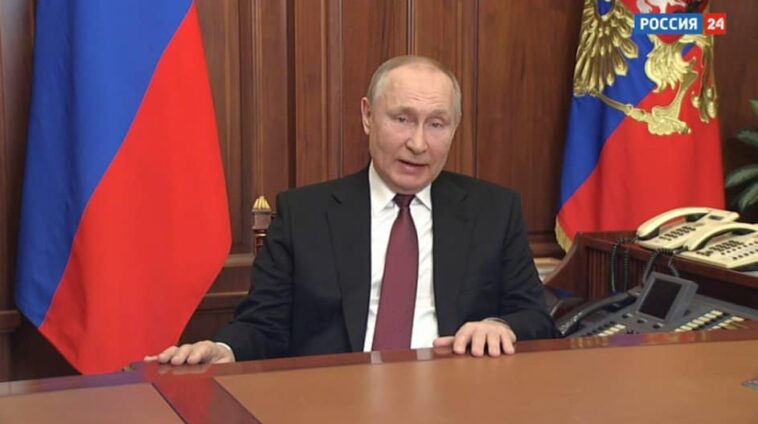In a high-stakes diplomatic maneuver, President Recep Tayyip Erdogan of Turkey embarked on a mission to win over Russian President Vladimir Putin and bring back to life an agreement that had facilitated Ukraine’s export of essential commodities amid the ongoing war with Russia.
Turkey’s president meets Putin for the revival of the Ukraine grain export deal
Having refused to extend the agreement in July, Putin’s decision dealt a blow to global food supplies, particularly in Africa, the Middle East, and Asia, where Ukraine and Russia are vital providers of wheat, barley, sunflower oil, and other goods relied upon by developing nations.
Erdogan was forthright in declaring that the grain deal was the main focus of the extensive talks between the two leaders held in Russia’s exclusive resort on the Black Sea, Sochi, where Putin owns a residence.
Acknowledging that the Ukraine crisis would be a topic on the agenda, Putin assured Erdogan that negotiations were on the table regarding the grain deal, echoing the Kremlin’s official position on the matter.
Russia reneged on the agreement, citing the failure to honor a parallel deal that would have removed barriers to Russian food and fertilizer exports. Despite having shipped record amounts of wheat in recent times, Russia argued that shipping and insurance restrictions hindered its agricultural trade.
The outcome of these talks will have far-reaching consequences for global food security. Erdogan firmly believed that the message they would convey together after the meeting would represent a significant stride forward for the world, particularly for underdeveloped African countries.
Since Putin’s withdrawal from the grain initiative, Erdogan has repeatedly pledged to reinstate arrangements that mitigated the risk of a food crisis in various parts of Africa, the Middle East, and Asia.
This meeting took place against the backdrop of Ukraine’s recent counteroffensive against Kremlin’s invading forces.
In a recent turn of events, Ukrainian President Volodymyr Zelenskyy announced that Defense Minister Oleksii Reznikov would be replaced in the forthcoming week. Zelenskyy maintained that the role required “new approaches” without providing further details. Reznikov, on the other hand, shared a photo of his resignation letter on Monday.
Analysts anticipate tough and uncompromising negotiations in Sochi
Tim Benton, a food security expert at the Chatham House think tank, expressed his intuition that Putin grasped the leverage he possessed by employing food as an economic weapon. This suggests that he will fight relentlessly to secure substantial concessions from his wish-list during the talks.
Among the possible concessions that may be sought by Putin are Russia’s grains and fertilizer exports, as well as broader issues.
Data compiled by the Joint Coordination Center in Istanbul, responsible for organizing Ukraine’s shipments, reveals that 57% of the grain from Ukraine went to developing countries, with China being the primary recipient, receiving nearly one-quarter of the food.
Russia has consistently targeted the Odesa region, Ukraine’s key Black Sea port area. On Monday, the Ukrainian air force reported intercepting 23 out of 32 drones that were directed towards the Odesa and Dnipropetrovsk regions, although the extent of damage caused by the drones that evaded interception was not specified.
Despite the 18-month war in Ukraine, the Turkish president has maintained close ties with Putin. Unlike Western nations, Turkey has refrained from imposing sanctions on Russia following its invasion, emerging as a significant trading partner and logistical hub for Russia’s overseas trade.
At the start of the talks, Putin highlighted various areas of bilateral cooperation, including a proposed Russian gas hub in Turkey and the construction of the first nuclear power plant in the country, in which Moscow is actively involved.
Turkey, as a NATO member, has also shown support for Ukraine by providing military aid
Erdogan raised eyebrows in Moscow when he allowed five Ukrainian commanders to return home in July. These soldiers had been captured by Russia and handed over to Turkey with the condition that they remain there for the duration of the war.
Putin and Erdogan, both authoritarian leaders who have wielded power for over two decades, share a close rapport that developed in the aftermath of the failed coup against Erdogan in 2016 when Putin was the first prominent leader to offer his support.
The Sochi summit follows discussions between the Russian and Turkish foreign ministers last Thursday, during which Russia presented a list of actions that the West must fulfill for Ukraine’s Black Sea exports to resume.
Erdogan has indicated his sympathy towards Putin’s position, asserting in July that Putin had “certain expectations from Western countries” regarding the Black Sea deal and emphasizing the urgency for these countries to take appropriate action.
Recently, U.N. Secretary-General António Guterres sent a letter with “concrete proposals” to Russian Foreign Minister Sergey Lavrov aimed at facilitating Russian exports to global markets and enabling the resumption of the Black Sea initiative. However, Lavrov expressed Moscow’s dissatisfaction with the letter.
Regarding Turkey’s ardent attempts to revive the agreement, Turkish Foreign Minister Hakan Fidan characterized it as an intricate process that seeks to comprehend Russia’s position and demands in order to accommodate them effectively.
- Facebook Messenger

